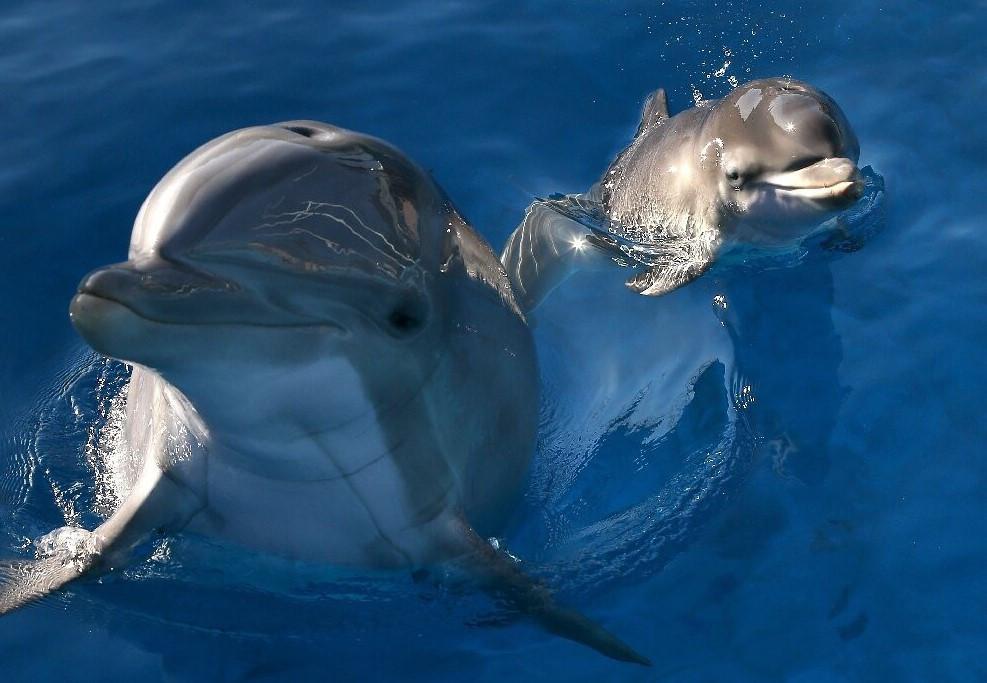
Think about people you know, and how you could tell they were around even if you couldn’t see them: Perhaps their voice, or a favored perfume.
For bottlenose dolphins, it’s the taste of urine and signature whistles that allow them to recognize their friends at a distance, according to a study published on May 18 in Science Advances.
“Dolphins keep their mouths open and sample urine longer from familiar individuals than unfamiliar ones,” first author Jason Bruck of the Stephen F. Austin State University in Texas said.
“This is important because dolphins are the first vertebrate ever shown to have social recognition through taste alone.”
The team said that the use of taste could be highly beneficial in the open ocean because urine plumes persist for a while after an animal has left.
This alerts dolphins to the recent presence of that individual even if it had not signaled its presence vocally.
The question of whether animals can attach “labels” to their friends in their minds has been difficult to answer.
Bottlenose dolphins, which use signature whistles to selectively address specific individuals, and can remember these for over 20 years, were thus an interesting test case.
To investigate, the team presented eight dolphins with urine samples from familiar and unfamiliar individuals, finding they spent around three times as long sampling urine from those they knew.
For the purposes of this study, the dolphins were trained to provide urine samples on demand in exchange for food. Dolphins do not have olfactory bulbs, leaving the team certain it was taste and not smell at play.
For the second part of the experiment, the team paired urine samples with recordings of signature whistles played via underwater speakers, corresponding to either the same dolphin that provided the urine sample, or a mismatched sample.
Dolphins remained close to the speaker longer when the vocalizations matched the urine samples, potentially indicating that the two congruent lines of evidence together evoked more interest.
“It is not every day that scientists find evidence of ’noun’-like use of signals in a non-human vocal system. That’s pretty exciting,” Bruck told AFP.
Dolphins have rich social worlds, he added, and it may be “just as advantageous for a dolphin to recognize alliance members as it is for them to recognize potential antagonists.”